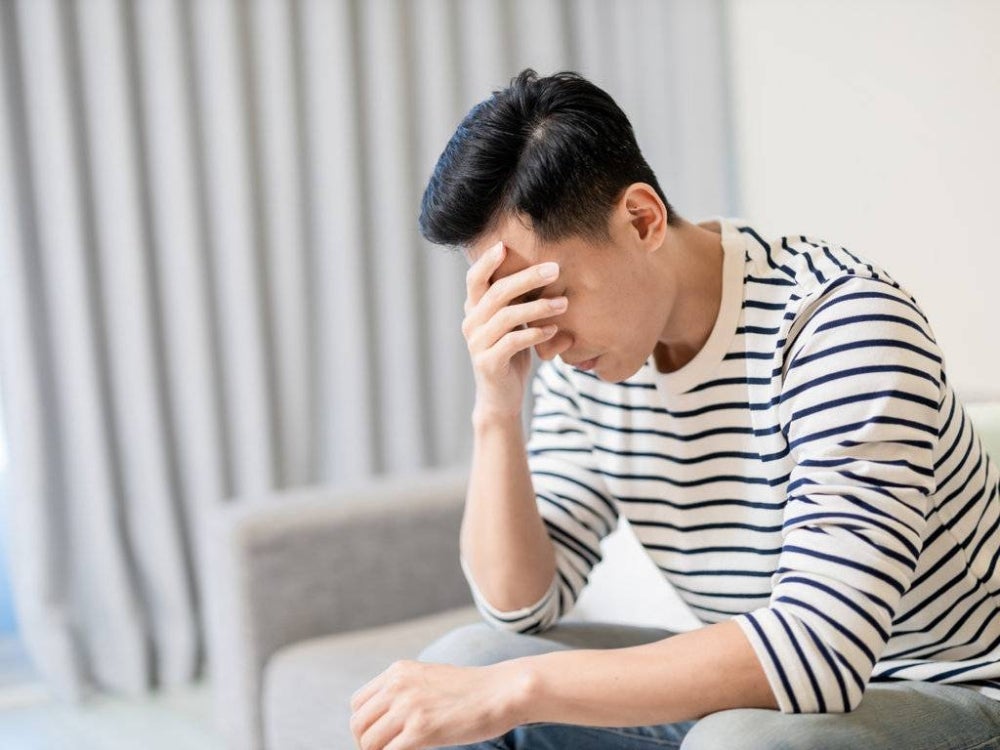Why we need to talk about men's mental health

We have been taught from a young age that boys should be tough and stoic, and that they shouldn’t cry because it’s not considered ‘masculine’.
The statistics show that men’s mental health cases are on the rise, and the society often acts surprised about it when in reality, the mindset and what is perceived as socially acceptable, discourages men to open up about their feelings and mental conditions.
Reed Psychology Centre Clinical Psychologist Janice Yee said National Suicide Registry Malaysia recorded an increase in male suicides as the suicide trend in Malaysia accelerates.
It was also recorded that despite women having a higher proportion for mental health illnesses compared to men, men are three times more likely to die by suicide.
Considering the suicide rate of 5.8 per 100,000 population in 2019, and given the population in Malaysia was 31.9 million in 2019, there were approximately 1,841 suicide deaths in 2019, which equals to five deaths per day.
Janice said the suicidal rate for men is concerning, especially when there is this widespread misconception that associates mental health to those who are “fragile” or “vulnerable”, or struggling with some sort of disorder.
She said most women are open to share about their mental health issues in public and would seek professional help in contrast to men who are less likely to talk about this.
“In general, it takes real strength for both women and men to say that they are not okay and not hide their true feelings.
“But the stigma towards men is self-evident as they shared that they have to put on an ‘I am okay’ mask just to avoid being looked down upon by their family or friends.
“A lot of men refuse to admit that they have this problem since they perceive depression as a sign of imperfection,” she told Sinar Daily in an interview.
When asked about the most common mental health issues for men, she said it is depression and anxiety disorder with the factors including presence of physical disabilities, a history of substance abuse, past suicide attempts, and an ongoing stressful life event such as serious financial issues and unemployment.
This is also the reason why men’s mental health hit an all time low during the pandemic.
As men are mainly perceived as the main breadwinner of the family, the economic fallout had understandably affected them.
“When there's an economic downturn that resulted in increased unemployment, there tends to be an increase in the suicide rate among men.
“Also, they tend to use coping methods that work against them, such as the use of harmful substances,” she said.
The first step toward change is awareness, says the experts.
If anything, this only intensifies how awareness on men's mental health (and women) should be raised and that they need to know how mental health is just as important as physical health.
Janice explained just like how physical pain can affect their work and relationship, mental health issues in cases such as stress, anxiety or depression can also deteriorate your physical health.
Chronic anxiety or depression may make a mess of their sleeping quality and thus, putting their physical health at risk.
She reminded that it is okay to be not okay and it is alright to ask for help.
Meanwhile, Raintree Specialist Clinic Consultant Psychiatrist Dr Subash Kumar Pillai feels that the awareness on mental health has in fact improved, but this is more evident among the youth, not the older generation.
“I find that young people, even adolescents, are more aware of their mental health and often tell their parents they need help.
“I feel that it is a really huge improvement in terms of awareness, but that also means that the awareness in adults is still poor and they often need convincing to get their child help.
“More talks about mental health awareness should be done in schools because a bigger impact on the awareness can be created if men have been exposed to the idea that they can be open about their mental health issues from a young age,” he said.
Hence, they will grow into adults who are aware of the importance of mental health issues and can easily seek help for not only themselves, but their children as well.
Remember, the message "it is okay to not be okay" applies to everyone, no matter the gender.
Download Sinar Daily application.Click Here!















